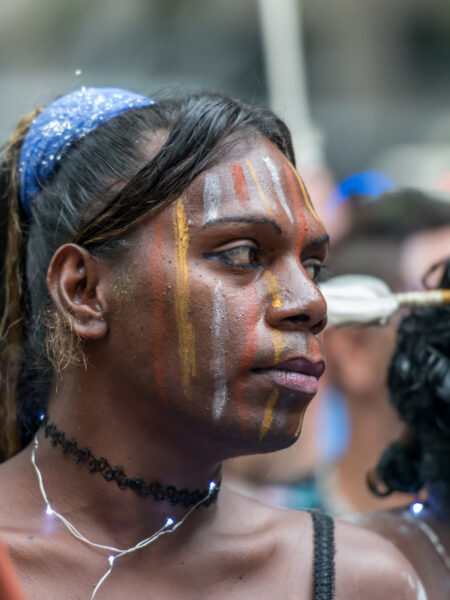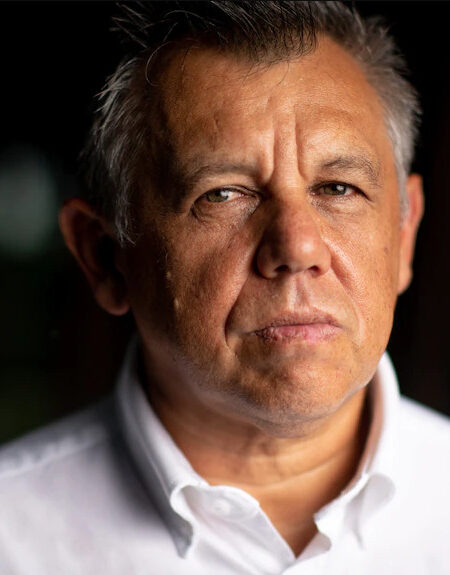The Uluru Statement from the Heart includes three key elements – Voice, Treaty, Truth – that many First Nations peoples in Australia have seen as the path for addressing past grievances and for progressing toward a better future for all Australians. Inserting a Voice to Parliament into our founding document is an express wish of the Aboriginal and Torres Strait Islander people for structural change that will enable them to speak to Parliament and to Government in order to improve laws and policies that affect them. It is not about giving Aboriginal and Torres Strait Islander people any special rights, it is just about providing them with an opportunity to provide input when laws and policies are being made which will affect them. This is consistent with the human right to self-determination in the United Nations Declaration on the Rights of Indigenous Peoples (UNDRIP).
There have been repeated calls from Aboriginal and Torres Strait Islander peoples that the full suite of international human rights norms and standards apply to their affairs and to dealings with them, including those set out in UNDRIP. The Declaration enshrines two important principles: the right to self-determination and the right to free, prior and informed consent. These rights are inextricably intertwined and it would be inadmissible and discriminatory to argue that these rights do not apply to Indigenous people because of their indigeneity.
And while Australia endorsed the UN Declaration on the Rights of Indigenous Peoples in 2009, many Australians will be surprised to discover that Australia does not have a national Human Rights Act enshrining or protecting these human rights commitments. Every other country in the Commonwealth of Nations has introduced some kind of comprehensive human rights protections in their domestic legislation, but Australia stands alone in not having introduced a Human Rights Act.
As Emeritus Professor Rosalind Croucher AM, the President of the Australian Human Rights Commission (AHRC) says, people’s human rights matter, all of the time. But this does not hold true in Australian law.
Australia has signed a number of United Nations conventions, covenants and declarations that commit us to protecting and promoting all human rights, but the majority of our international commitments have not been translated into our own national laws. While Australia does have a suite of equal opportunity and anti-discrimination laws in place at both Commonwealth and State/Territory levels, many Australians will be surprised to discover that there are very few laws protecting our human rights in Australia.
What Australia has is a patchwork legal framework of human rights protections. Rights that are protected are located in scattered pieces of legislation, the Constitution and the common law. It is piecemeal and incoherent. Often they overlap and prohibit the same kinds of discrimination, or there are gaps, exemptions or exceptions which are not always uniform. In practice, it is a complex miasma to navigate and careful due diligence is required to ensure full compliance with both Commonwealth and State or Territory laws.
The Australian Constitution offers only a small number of discrete human rights protections. It does not have a Bill of Rights such as that found in the United States Constitution which prevents the legislature from passing laws that infringe basic human rights (such as freedom of speech). And while the common law recognises a number of rights and freedoms indirectly through statutory interpretation principles such as the ‘principle of legality’, such common law protections are fragile, with Parliament able to pass a law that overrides them at any time.
At present, the Commonwealth is not obliged to consider human rights in their policy making or decision making. It should be obliged to do so.
Interestingly, Human Rights Acts have been enacted in the Australian Capital Territory (ACT), Victoria and Queensland, with particular implications for the protection of human rights and self-determination of First Nations peoples.
The Human Rights Act 2004 (ACT) (ACT Human Rights Act) was introduced first, setting out key rights from the International Covenant on Civil and Political Rights (ICCPR, adopted by the United Nations in 1966). It has been updated to include additional rights in the years since. The ACT Human Rights Act influenced the Charter of Human Rights and Responsibilities 2006 (Vic) (Victorian Charter), and the Human Rights Act 2019 (Qld) (Queensland Human Rights Act) was influenced by both ACT and Victorian models (AHRC P.107).
The ACT’s Human Rights Act recognises a range of civil, political, economic, social, and cultural rights; it requires that all legislation be assessed for compatibility with those rights, and that all public authorities have obligations to give them proper consideration when making decisions. The ACT Human Rights Act was reviewed and amended in 2014 to insert additional provisions to protect the distinct cultural rights of Aboriginal and Torres Strait Islander peoples. The amendments to the Act also included a change to the Preamble to change the reference to the special significance of rights from ‘indigenous people’ to ‘Aboriginal and Torres Strait Islander peoples’. This subtle change was important because it recognised that Aboriginal and Torres Strait Islander peoples should not be represented as a homogenous group with a uniform cultural heritage and identity, but rather should be acknowledged and recognised as being a diverse group of peoples with differing histories, aspirations and relationships. A recent case was brought before the ACT Supreme Court by the local Ngambri people against the ACT Government for discrimination under the ACT Human Rights Act 2004; it was settled out of Court by mediation. This settlement to recognise the ‘self-determining Ngambri people’ as having connections to Country in addition to the Ngunnawal was only made possible due to the 2014 amendment to the Human Rights Act 2004 (ACT) to insert the recognition of Aboriginal and Torres Strait Islander cultural rights into s 27(2) of the Act. Section 27(2) specifically provides that:
Aboriginal and Torres Strait Islander peoples hold distinct cultural rights and must not be denied the right:
(a) to maintain, control, protect and develop their–
- cultural heritage and distinctive spiritual practices, observances, beliefs and teachings; and
- languages and knowledge; and
- kinship ties; and
(b) to have their material and economic relationships with the land and waters and other resources with which they have a connection under traditional laws and customs recognised and valued.
An earlier case of discrimination against the Ngarigo People in 2011 which was referred to the ACT’s Administrative and Civil Appeals Tribunal by the ACT Human Rights Commission was not successful for the Ngarigo because the relevant provisions providing protections for the human rights of Aboriginal and Torres Strait Islander peoples did not exist at the time.
What the ACT, Victorian and Queensland Human Rights Acts show is that international human rights norms and standards are well capable of being protected in line with Australia’s particular democratic structure, and becoming part of Australian laws.
Without a Human Rights Act, Australia is increasingly isolated from the shared legal standards in countries with domestic human rights instruments, such as Canada, New Zealand and the United Kingdom. Enacting a national Human Rights Act in Australia would not only bring us into line with these countries and help repair our credibility on the international stage (AHRC, p.59), but embed transparent, human rights-based decisions into our democratic culture and work to prevent breaches of human rights from occurring.
Regardless of the outcomes of the Constitutional referendum later this year, Australia ought to enact a federal Human Rights Act which should do three things: protect human rights; prevent violations of human rights; and provide effective relief for breaches of human rights. In particular, a federal Human Rights Act that includes Aboriginal and Torres Strait Islander peoples’ human right to self-determination and the right to free, prior and informed consent would be a powerful tool – complimentary to Voice, Treaty and Truth – in contributing to the structural change necessary to bring about a better and more just future.




